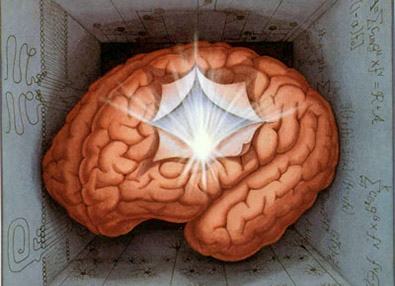Neuropharmacology Research
Faculty within the Pharmacology department working in the area of neuroscience and neuropharmacology focus their research in characterizing the cellular and molecular mechanisms which underlie neuronal function and survival. Because neuroscience/neuropharmacology is an increasingly integrative discipline, research at UCD utilizes many different core facilities and crosses departmental boundaries. One of the strengths of our faculty lies in the fact that they have experience in a number of different scientific disciplines.
Specific areas of neuropharmacology research at UCD includes the study of molecular memory and synaptic plasticity, neuronal survival and apoptosis, neuronal signal transduction, and neuropharmacology. In addition the pharmacology faculty has a particularly strong interest in the neuropharmacology of drugs of abuse.

Primary Faculty
Aoto, Jason, Assistant Professor
Ph.D., 2009, Univ. of California, Berkeley
We are interested in dissecting the distinct functions of synaptic cell-adhesion molecules implicated in neuropsychiatric disorders and addiction in the context of disease-relevant brain circuits. Using cutting-edge multidisciplinary techniques, we are able to interrogate these molecules with cell-type and synapse-specific resolution.
Ph.D., 1996, Heinrich-Pette-Institute
Molecular memory mechanisms in cellular signal transduction and neuronal function; CaMKII and Ca2+ signaling.
Dell'Acqua, Mark L., Professor and Vice Chairman
Ph.D., 1995, Harvard Univ.
Organization of signaling complexes by protein kinase and phosphatase anchoring proteins; mechanisms regulating neuronal second messenger signaling in synaptic plasticity.
Ph.D., 2003, Univ. of Alberta
We study synaptic mechanisms by which neuromodulators like dopamine and acetylcholine are encoded in mesolimbic and nigrostriatal circuits through GPCRs. We study the basic biology of these circuits and the alterations that occur in neurological and psychiatric diseases.
Kennedy, Matthew J., Associate Professor
Ph.D., 2003, Univ. of Washington
Molecular mechanisms of activity-triggered synaptic remodeling.
Kutateladze, Tatiana G., Professor
Ph.D., 1988, Moscow State Univ.
Epigenetics, phosphoinositide signaling, structural biology, NMR and crystal structures of proteins implicated in cancer, structure based drug design.
Oh, Won Chan, Assistant Professor
Ph.D. 2013, Univ. of California, Davis
We study molecular and cellular mechanisms of activity-dependent synaptic and circuit remodeling primarily through live-imaging approaches using two-photon microscopy and photostimulation in vivo and in brain slices, combined with electrophysiology and molecular genetic manipulations.
Smith, Katharine R., Assistant Professor
Ph.D., 2010, University College London
Molecular mechanisms of excitatory and inhibitory synaptic plasticity.
Secondary Faculty
Benke, Timothy A., Associate Professor
M.D./Ph.D., 1995, Baylor College of Medicine
Mechanisms of synaptic plasticity and impacts of development and epilepsy.
Dabertrand, Fabrice, Assistant Professor
Ph.D., 2006, University of Bordeaux, France
The overall goal of our laboratory is to understand the control of cerebral blood flow by ion channels and calcium signaling in the pericytes, endothelial cells, and smooth muscle cells that constitute the parenchymal microcirculation, and use this information to combat brain diseases with a vascular component.